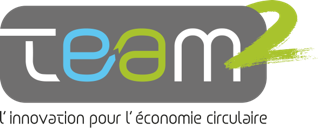AGRIBAT
Batteries are an integral part of our daily lives and ensure the functioning of new devices used for various applications: medical, security, etc. These end-of-life items are considered "special waste". They contain aggressive salt solutions, metals that threaten the health of living beings (cadmium, manganese, mercury, nickel, lead, zinc, etc.), and problematic synthetic substances, such as flame retardants that can act as hormone disruptors. Many efforts are made to collect batteries and small batteries, to avoid any environmental pollution. On the other hand, the treatment and recovery of certain types of batteries is not optimally ensured. The Agribat project aims to provide a solution for the recovery of all Zinc-Air battery elements.
The Agribat project, for the recovery of materials from end-of-life Zinc-air batteries
Considered until now as technologically outdated and with little future, Zinc-air batteries (Zn-air) now represent a potential green, economical and efficient alternative to Lithium-Ion batteries. The slow redox reaction of oxygen still makes recharging complicated. But these batteries have the double advantage of providing high energy densities at a very low cost.
Thanks to research carried out in Belgium and Asia, zinc batteries could become rechargeable, and could be suitable for various applications, for heavy mobility (buses, trucks, etc.), but above all for high-capacity electrical storage, because of their low production cost.
With this in mind, Lumiver was interested in setting up an industrial process to recover all the elements of Air Zinc batteries.
In collaboration with the Eco-Organisations COREPILE and SCRELEC, Lumiver has been collecting and sorting mixed batteries for many years. One thousand tonnes of batteries are collected and sorted at their site in Seclin each year. These two eco-organisations then entrust the sorting, carried out by Lumiver, to processing companies located in France and even abroad.
The objective of the Agribat project is to anticipate and ensure the development of Lumiver, located in Seclin, by allowing the recycling and recovery of all Air-Zinc battery elements on its site. To ensure the success of this new development, it is essential to
- To study the most suitable and flexible process to recover all the elements of the Air-Zinc battery: zinc, metals (except zinc), and plastic,
- To ensure close collaboration with the Eco-Organisations and all the players capable of recovering the elements of the battery,
- Analyse the most suitable economic model, depending on the forecasted deposits.
